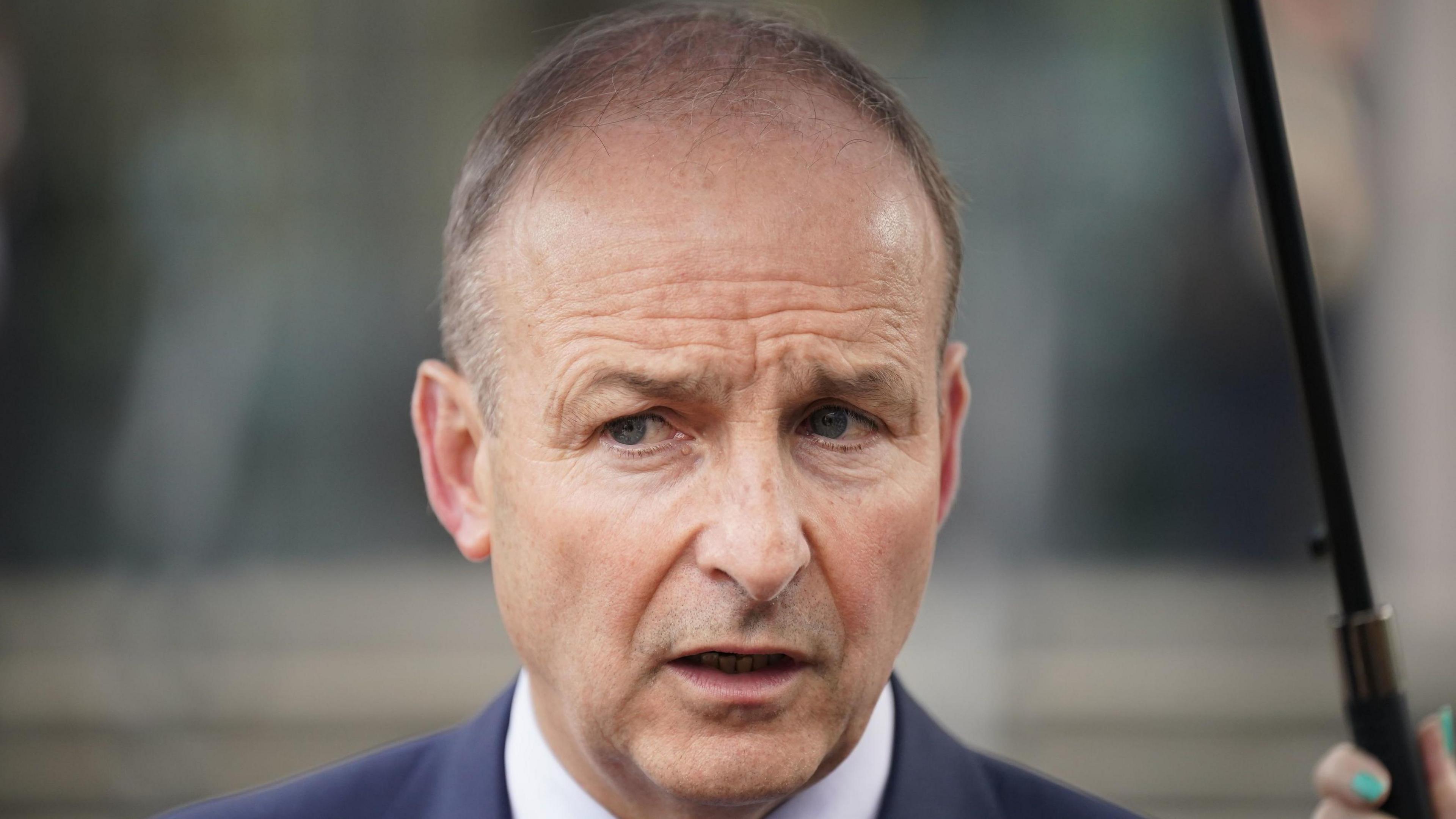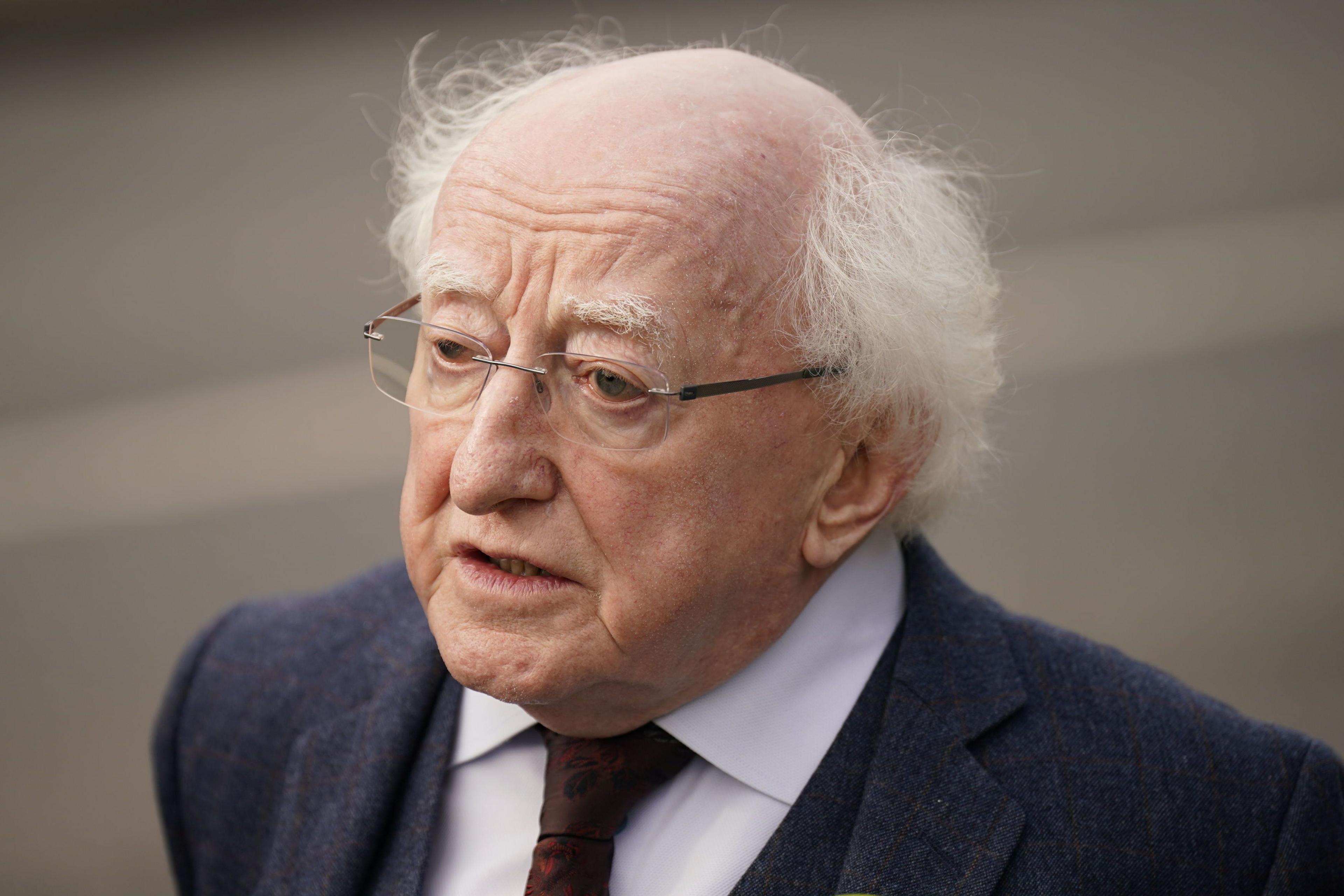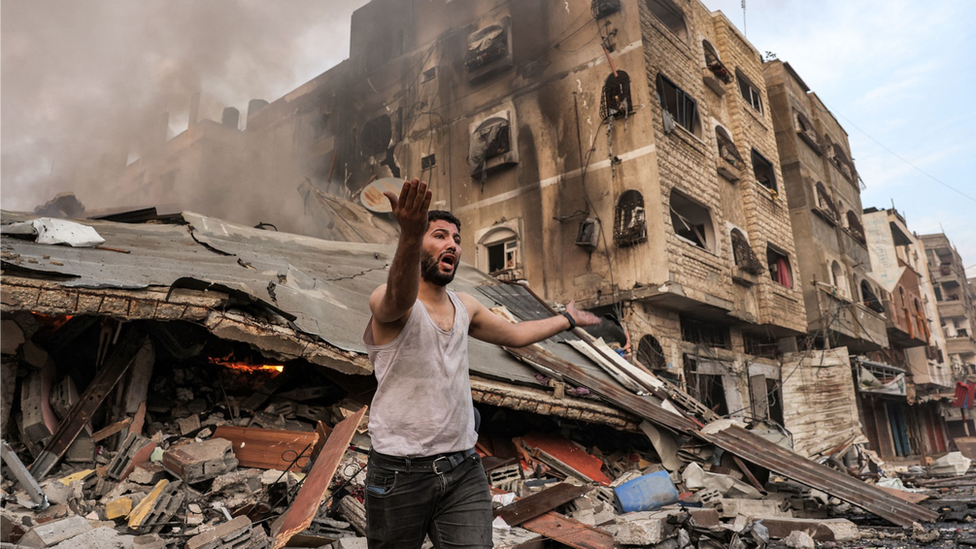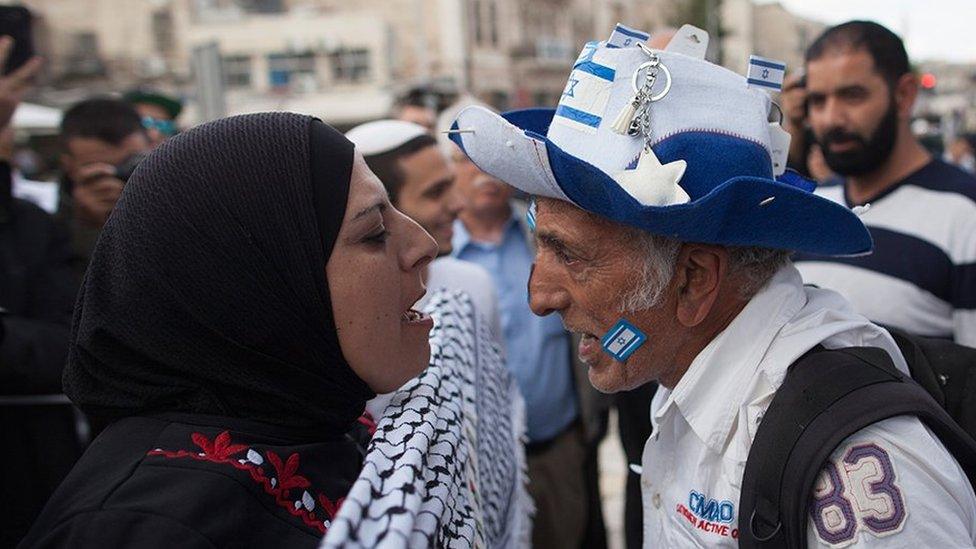Israeli strikes on Gaza 'disproportionate' - Martin

Ireland's deputy prime minister is also its foreign minster
At a glance
The Republic of Ireland's foreign minister has described Israeli strikes on the Gaza Strip as "disproportionate"
Micheál Martin was speaking at the opening of Fianna Fáil's annual conference on Saturday
The party leader said the violence in the region was unjustified and reiterated calls for an immediate ceasefire
However, he stopped short of calling for the expulsion of the Israeli ambassador in Ireland, adding that it was a "populist" view
- Published
The Republic of Ireland's foreign minister has called Israel’s attacks on Gaza ”disproportionate” and “not necessary”.
Tánaiste (Irish deputy prime minister) Micheál Martin was speaking at the opening of his party's annual conference on Saturday.
More than 9,000 people have been killed in Gaza as Israel carries out strikes after Hamas gunmen launched an unprecedented assault on 7 October.
Mr Martin said the ongoing offensive in the region was unjustified and agreed with Taoiseach (Irish prime minister) Leo Varadkar who called the attacks “something approaching revenge".
“There was clearly a lot of anger in Israel, but that does not justify, in my view, the scale of the bombardment on Gaza," said Mr Martin.
“I believe what Israel is doing is disproportionate, it's not necessary.
"So, I believe it contravenes the fundamental principles of international humanitarian law, where the concepts and principles of necessity and proportionality are key.”
Mr Martin added that “too many children are losing their lives and too many innocent civilians are losing their lives” and although Israel is pursuing Hamas, it is doing so in a “ruthless way".
Sinn Féin call for Israeli ambassador to be expelled
- Published3 November 2023
'My wife died in five minutes, she was my life'
- Published3 November 2023
Israeli PM Benjamin Netanyahu said on Friday there will be no temporary ceasefire with Hamas in Gaza until all Israeli hostages are released as civilian casualties continue to mount.
The tánaiste reiterated the Irish government’s call for an immediate cessation of violence to allow humanitarian aid into Gaza, including vital medical supplies.
Mr Martin said the International Criminal Court would ultimately decide on whether or not the actions taken by Israel are considered war crimes.
No expulsion of Israeli ambassador
He also rejected any assertion that Ireland may expel the Israeli ambassador.
On Friday, the Republic of Ireland's main opposition party Sinn Féin labelled the ambassador’s position as untenable and said they should no longer enjoy diplomatic status.
Mr Martin said the move was populist.
“Fundamental to international diplomacy is the very basic necessity of maintaining links and channels of communications with other states,” he said.
“Having diplomatic relations does not mean one endorses the policies of any given state, but it's an essential aspect of the conduct of foreign policy, that we would retain diplomatic channels and particularly in the context of a dispute on a conflict, a major war.”
Ros Atkins on... Calls for a ceasefire in Gaza
The Irish government is working to get Irish citizens out of Gaza, of which there are between 30 and 40, plus some dependents, Mr Martin said.
“Logic escapes me as to how we are to meaningfully seek to get our citizens out of Gaza,” he added.
“If we expel this Israeli ambassador... that would immediately mean the suspension of the Irish ambassador, who's working in Israel and at the moment is working and keeping contact with all of the Irish citizens in Gaza.
“I think it's populist agenda, it's not serious conduct in foreign policy.”
Mr Martin said while there are different strands of opinion across the European Union, it would be extremely to get any unanimity on sanctioning Israel.
More on Israel-Gaza war
Follow live: Latest updates
Hostages: Who are the people taken from Israel?
From Gaza: Stories of those killed in Gaza
Gaza: 'My wife died in five minutes, she was my life'
Explained: Ros Atkins on... Calls for a ceasefire in Gaza
History behind the story: The Israel-Palestinian conflict
Related topics
- Published23 October 2023


